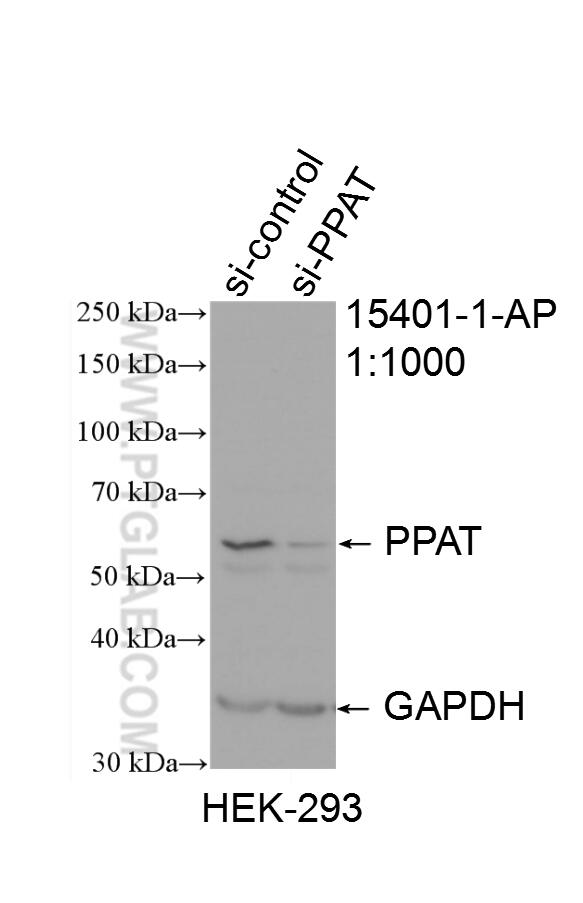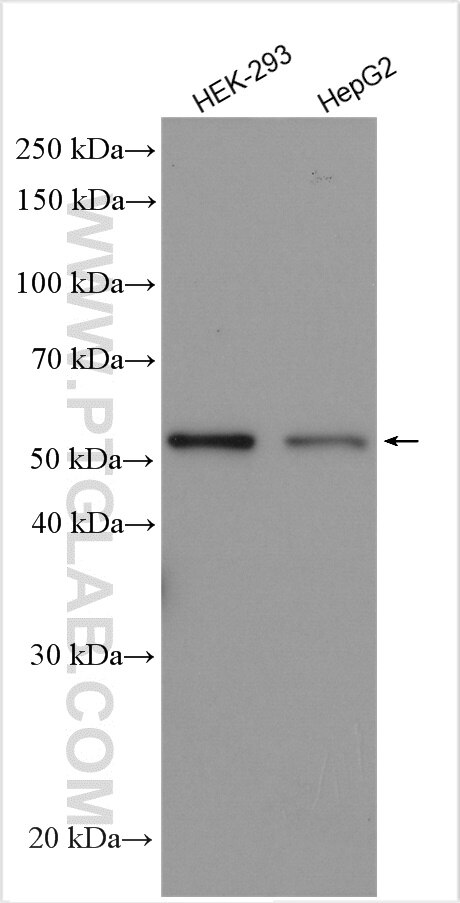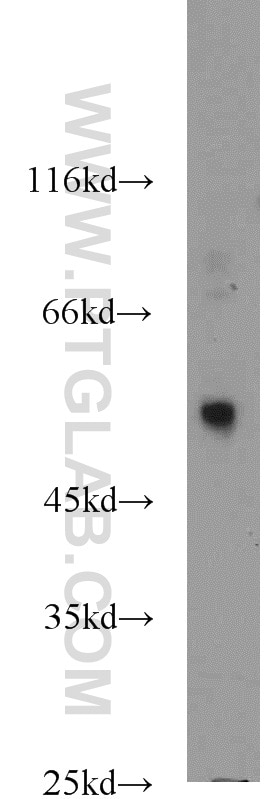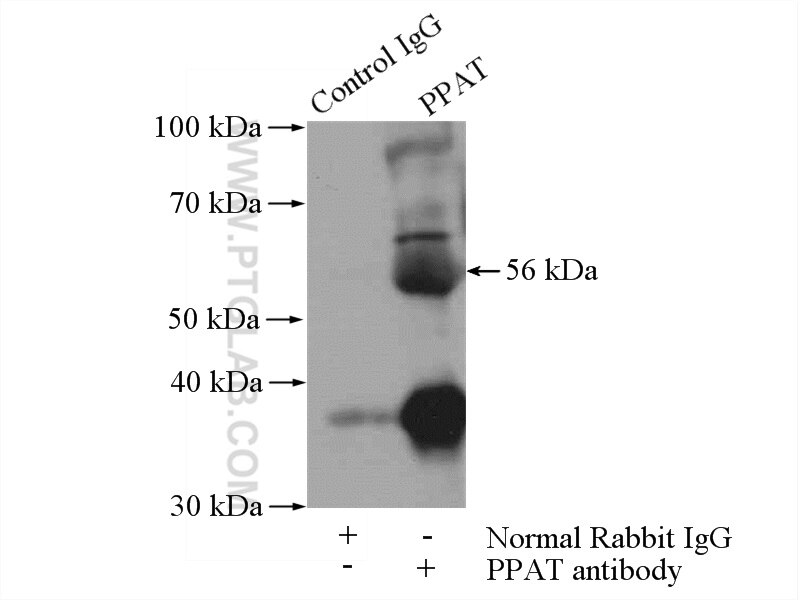- Phare
- Validé par KD/KO
Anticorps Polyclonal de lapin anti-PPAT
PPAT Polyclonal Antibody for WB, IP, ELISA
Hôte / Isotype
Lapin / IgG
Réactivité testée
Humain, rat, souris
Applications
WB, IHC, IP, ELISA
Conjugaison
Non conjugué
N° de cat : 15401-1-AP
Synonymes
Galerie de données de validation
Applications testées
| Résultats positifs en WB | cellules HEK-293, cellules HepG2 |
| Résultats positifs en IP | cellules HepG2 |
Dilution recommandée
| Application | Dilution |
|---|---|
| Western Blot (WB) | WB : 1:2000-1:10000 |
| Immunoprécipitation (IP) | IP : 0.5-4.0 ug for 1.0-3.0 mg of total protein lysate |
| It is recommended that this reagent should be titrated in each testing system to obtain optimal results. | |
| Sample-dependent, check data in validation data gallery | |
Applications publiées
| KD/KO | See 3 publications below |
| WB | See 24 publications below |
| IHC | See 1 publications below |
Informations sur le produit
15401-1-AP cible PPAT dans les applications de WB, IHC, IP, ELISA et montre une réactivité avec des échantillons Humain, rat, souris
| Réactivité | Humain, rat, souris |
| Réactivité citée | rat, Humain, souris |
| Hôte / Isotype | Lapin / IgG |
| Clonalité | Polyclonal |
| Type | Anticorps |
| Immunogène | PPAT Protéine recombinante Ag7618 |
| Nom complet | phosphoribosyl pyrophosphate amidotransferase |
| Masse moléculaire calculée | 57 kDa |
| Poids moléculaire observé | 50-56 kDa |
| Numéro d’acquisition GenBank | BC004200 |
| Symbole du gène | PPAT |
| Identification du gène (NCBI) | 5471 |
| Conjugaison | Non conjugué |
| Forme | Liquide |
| Méthode de purification | Purification par affinité contre l'antigène |
| Tampon de stockage | PBS with 0.02% sodium azide and 50% glycerol |
| Conditions de stockage | Stocker à -20°C. Stable pendant un an après l'expédition. L'aliquotage n'est pas nécessaire pour le stockage à -20oC Les 20ul contiennent 0,1% de BSA. |
Protocole
| Product Specific Protocols | |
|---|---|
| WB protocol for PPAT antibody 15401-1-AP | Download protocol |
| IP protocol for PPAT antibody 15401-1-AP | Download protocol |
| Standard Protocols | |
|---|---|
| Click here to view our Standard Protocols |
Publications
| Species | Application | Title |
|---|---|---|
Science mTORC1 induces purine synthesis through control of the mitochondrial tetrahydrofolate cycle. | ||
Cancer Cell Nrf2 redirects glucose and glutamine into anabolic pathways in metabolic reprogramming. | ||
Mol Cell ERK2 Phosphorylates PFAS to Mediate Posttranslational Control of De Novo Purine Synthesis. | ||
Nat Commun A shift in glutamine nitrogen metabolism contributes to the malignant progression of cancer. | ||
EMBO J UHMK1 promotes gastric cancer progression through reprogramming nucleotide metabolism.
|





